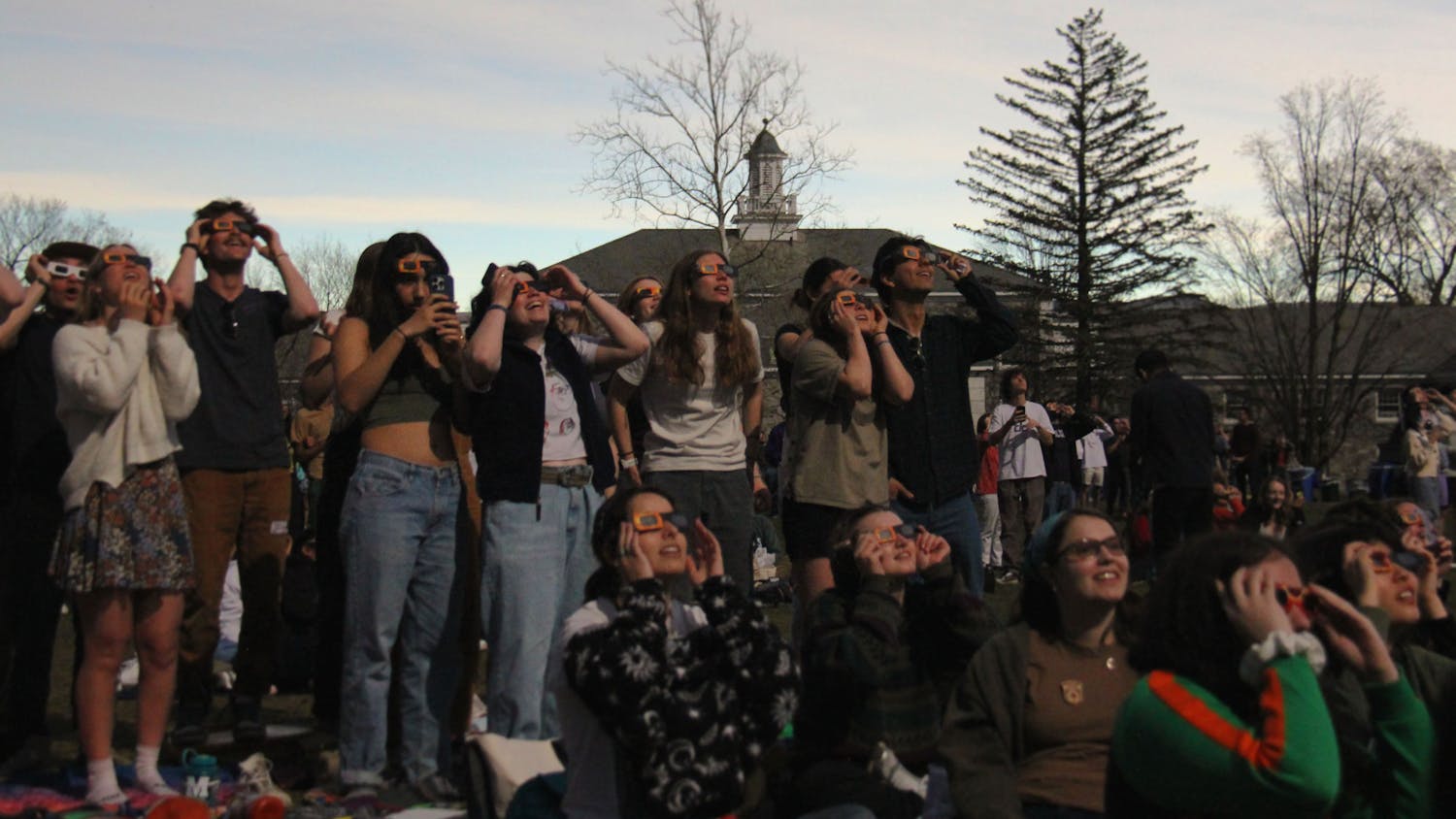Author: Nicha Rakpanichmanee
LaKesha Lindsay '96 came to Middlebury College to study Russian and is now a self-employed jewelry designer in Louisville, Ky.
"I was my major from Day One," said Lindsay. She noted that she wanted to study Russian as early as 13 years old, when she read about the country's "grandeur and opulence" in Ronald Massie's book "Nicholas and Alexandria."
Lindsay's artistic passion developed almost simultaneously, when as a 13-year-old, she happened upon a book of imperial eggs designed by Carl Faberge, court jeweler to two Russian tsars.
"I knew at that moment that I wanted to be a great jeweler and the best-spoken Russian," she recalled.
Lindsay studied Russian extensively in high school and then started from scratch at Middlebury to ensure a solid background. She studied abroad in Kyrgyzstan for a year and, during her second semester, learned metalsmithing and stone cutting from a private jewelry house. After graduation, she interned for a non-governmental organization for nine months each in Kyrgyzstan and Uzbekistan.
In the end, however, Lindsay chose to set up a studio with two young jewelers and began her own business. Her established clients are in the Midwest and the South. Lindsay's opportunities to use Russian are limited to letters to her best friend and conversations with her companion — the ones that touch on Russian concepts and the ones that need to be private in a public setting.
Like Lindsay, many Middlebury students have drawn inventive links between their language skills and personal interests. In such fields as art, teaching, politics and business management, fluency in at least one foreign language has carried Middlebury students across geographical and cultural boundaries.
According to Angel Diaz '93, he made a cross-cultural transition even before he mastered Arabic. Having studied Italian, French and Spanish in high school, Diaz asked his Italian teacher where "the best college for foreign languages [was], and she said Middlebury."
"I didn't even know where Vermont was on the map," Diaz admitted. "You have to remember, I'm a Hispanic kid from Miami, from the heart of Little Havana, who learned English in school and spoke Spanish at home and everywhere else."
Diaz's transition from the Florida coast to New England was not a smooth one, he recalled. He remembered that he "hated" living in "freezing cold Vermont in a tiny town." A double Italian-Spanish major, Diaz said he stopped attending most his classes, including Spanish, by the end of his sophomore year. Diaz decided to withdraw in early 1992 and left for Middlebury's semester abroad program in Greece.
"My experience in Greece helped me to understand that more than a student of language, I enjoyed learning about the culture, the people and cultural nuances and dynamics," said Diaz. After five months in Greece, he "liked it so much that [he] was baptized Greek Orthodox" before returning to Middlebury to change his major to sociology/anthropology.
Despite his fascination with foreign cultures, Diaz admitted to one former "prejudice."
"Because of the Gulf War, and because all I watched during my meals at Proctor was CNN, well, Western media taught me that all Arabs are terrorists, that all Muslims are terrorists, that all terrorists are Arab Muslims," explained Diaz. His Lebanese-Irish friend, who had just attended the Arabic Language School, "pointed out that I wasn't thinking right."
"I realized that if I were going to be an anthropologist and a student of the Mediterranean area and cultures, I needed to understand the Arabs, their language and their culture because the North African shore and the Levant cover a significant portion of the Mediterranean Sea," Diaz commented. The very next summer, he enrolled in the 1993 Arabic Language School.
"This was when I began to grow out of my ignorance," he recalled. Diaz said he realized the striking similarity between his Spanish culture and Arab culture, from their common vocabulary to the overlapping history of the Spanish and Arabic worlds. Diaz also learned that Islam is a "peaceful religion."
"The Arabic School … was the most amazing experience I have ever had, and perhaps my life-changing experience," he commented. After the Middlebury Arabic School, Diaz eventually enlisted in the United States Navy in 1999 as an Arabic linguist. He advanced his studies in the Arabic program at the Army's Defense Language Institute in California and delivered his graduation speech last May in Arabic. Diaz currently teaches Arabic at the Army Institute and is taking Middle Eastern Studies courses at the graduate level.
While Lindsay has devoted her time to completely new pursuits after mastery in Russian, Diaz has retained the academic focus of his Arabic studies. Annalisa Parent '97 is a French major who has been intertwining the two worlds, right down the road at St. Mary's Elementary School in Middlebury.
In her kindergarten classroom during naptime, Parent motioned to the little girl who was showing her picture book to a teddy bear. "That's part of the charm," she explained. Parent has always wanted to teach young children because "they are so curious, they will say anything and ask you anything and they are open and honest. And they are silly, and I'm silly, too."
Parent began her work at St. Mary's as a director of the afternoon program two years ago, when the school first reopened since the 1940s. The next year she began teaching kindergarten. That year, Parent had the opportunity to teach French to kindergarten and first grade students for a few months, but she opted against being a full-time French teacher.
Instead, Parent teaches private French lessons three hours per week. Her students range from kindergarteners to sixth graders, including a second-grader who has been studying for four years and is now nearly fluent. She describes her lessons as often "self-directed." For example, Parent teaches vocabulary words specific to age-related interest, as in animals for kindergarteners and clothing for sixth graders.
Beyond the French lessons, Parent has kept in touch with many French pen pals, whom she met during her junior year abroad in Nanterre. She is "always reading a French novel" and visits France as often as she can.
"There's no real practical application for [the French major] in my life," said Parent. "It's just fun."
More than pleasure, however, languages are Parent's passion. "I love languages so much," she remarked. She is currently teaching herself Romanian, in preparation for her upcoming trip to Romania. She has also bought "Spanish for Dummies" and has long learned "a couple of phrases in so many languages."
"In a trivial sense, 'I' wouldn't exist as a monolingual," agreed Wright Frank '95. Another French major, Frank earned a Master's degree in linguistics, "developed an interest in the Arab world through friends from Palestine and Lebanon" and attended the Arabic Language School. He has recently returned from a Peace Corps project in Morocco.
"I enjoyed working with Nuer, a nilo-saharan language spoken in southern Sudan through refugees in the Buffalo and Rochester areas while writing my Master's thesis," Frank continued. "I'm torn between a desire to learn languages with a practical import and languages that are a little 'out there' and not studied much."
However, Frank also said that he was originally inspired to study Arabic because the language was "hugely under-studied." This language of increasing popularity expects to graduate over a hundred people this summer — a hundred more stories to tell.
Multilinguists Converse Beyond Borders
Comments



